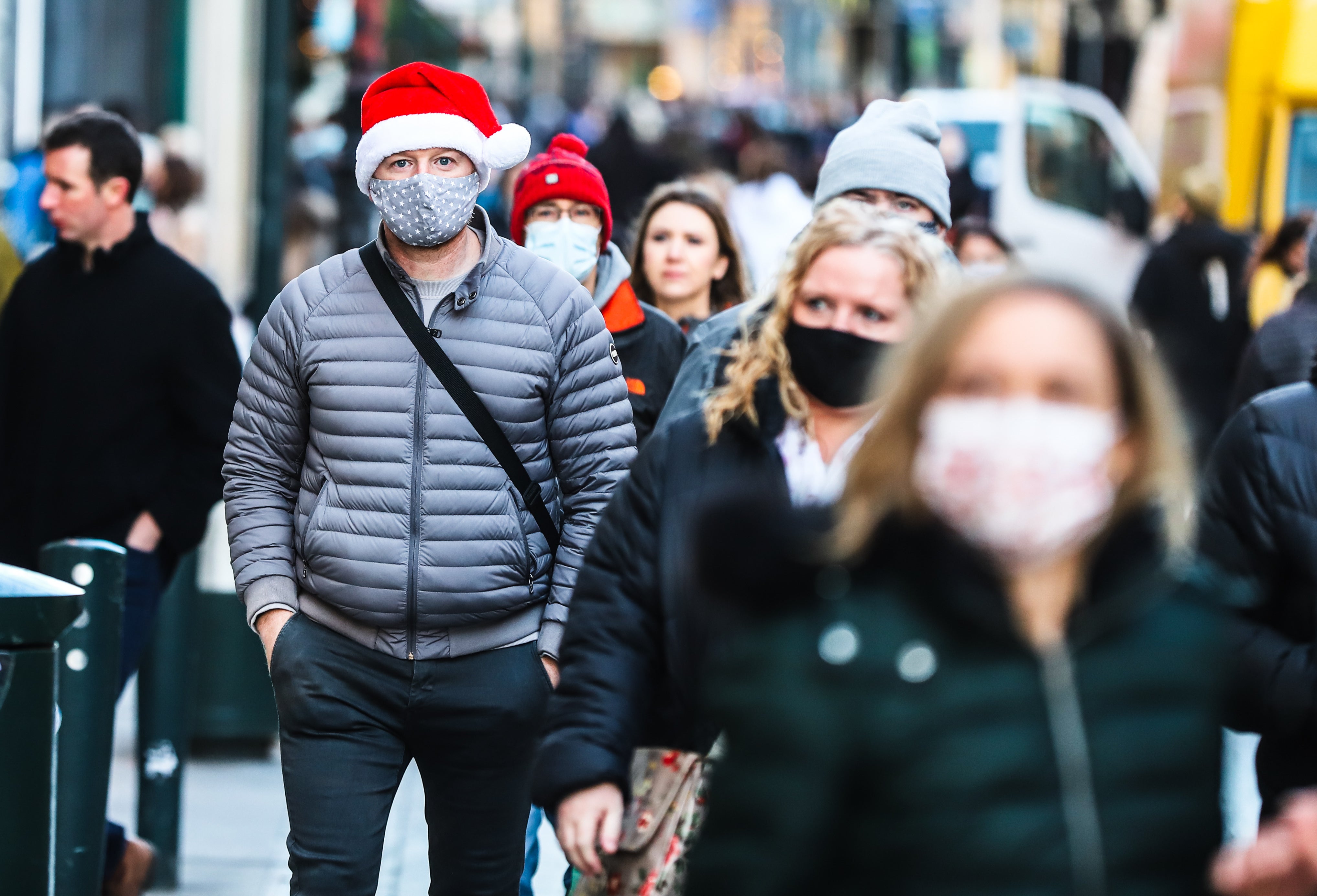Warnings over new credit crisis as Christmas debt kicks in early
January is usually the month of battling high debts from the festive season, but this year credit levels have already started rising

The Christmas adverts have been in full swing for weeks, and Black Friday sales still seem to be lingering on, with retailers using every tactic in the book to persuade people to part with their cash to celebrate the festive season.
The data shows we’re more than happy to plough cash into this year’s festivities. In October we spent £600m on credit cards, the highest monthly amount since July 2020, according to data from the Bank of England.
Between November 2020 and August 2021, applications for credit more than doubled according to data from Equifax, with 12 per cent more applications for credit in August compared to January 2020.
After last year’s cancelled Christmas, the pressure seems to be stronger than ever to make this year’s celebration count, with a strong commercial drive for spending on everything from presents and toys to mince pies and turkeys.
Yet while on one hand rising credit signals a return to confidence, Christmas comes at an especially hard time for many this year.
Prices are rising across the board, with inflation hitting 4.2 per cent in October – the highest rate since November 2011 – and many Covid benefits, such as the furlough scheme and the £20 universal credit uplift, no longer offering support to those out of work.
Tackling debt is historically a task for January, when we pay off extra money spent at Christmas. Therefore it’s particularly worrying that debt is already rising at a time when we’re still very much in the middle of both a health crisis and an economic one.
The data from Equifax does not show the full picture, either. This is because it doesn’t include what it calls ‘hidden borrowing’, such as anyone using ‘buy now pay later’ (BNPL) schemes, as these do not require a hard credit check.
New regulation is on its way for the currently unregulated world of BNPL, because of the way it lets people build up unmanageable and unaffordable debts.
Get a free fractional share worth up to £100.
Capital at risk.
Terms and conditions apply.
ADVERTISEMENT
Get a free fractional share worth up to £100.
Capital at risk.
Terms and conditions apply.
ADVERTISEMENT
It’s estimated that we’ve racked up more than £4bn in debt this year by paying with BNPL, according to Credit Karma. It says around 7.7 million people have accumulated significant balances paying this way, averaging £538 per person.
Borrowers without a good credit history are also paying out more for credit, with near-prime borrowers being hit the hardest.
There are around 12 million near-prime borrowers in the UK, who may have missed a credit card payment or have a thin credit file. They sit within prime borrowers, those with a good credit score who are seen as a low risk to lenders, and sub-prime borrowers, those with poor credit scores who are seen as a high risk to lenders and therefore charged more.
Last year a prime borrower was likely to pay £114,500 in interest over a lifetime, while a near-prime borrower would pay £35,600 more. Now this has risen 10 per cent to £39,000, according to Credit Karma.
Sue Anderson, head of media at the StepChange debt charity, said: “While rising use of credit may well reflect increasing confidence, it’s also likely to reflect increasing financial pressure among some households.
“The increase in sub-prime card use rings warning bells. Our previous research shows that even people who intend to use them to build up their credit status all too often end up turning to them to help make ends meet in paying for essentials, and then get trapped on balances they struggle to pay down.
“The cost of living has ramped up over the last six months, while incomes haven’t necessarily kept pace. As we approach the festive season and winter, lenders and government will need to keep a close eye on the ways in which people are using credit, to ensure financially vulnerable households aren’t turning to higher-cost credit products to patch over hits to their income or rises in their costs of living that show no signs of abating.”
Anyone who managed to save money during the coronavirus lockdowns may now be eating into these pots. In October, an average of £5.5bn was put away into banks and building society savings accounts, the lowest level since February 2020, according to the Bank of England.
Laura Suter, head of personal finance at AJ Bell, said: “The cost-of-living crunch means the UK’s savings surge is petering out and is another thing that’s returned to pre-pandemic levels.
“This savings boom is unlikely to rebound in the coming months as rising prices continue to eat into everyone’s spare cash, while the extra spending we all do at the end of the year means many will use some of their savings to pay for a bumper Christmas after missing out last year.
“We’re already seeing spending creep up, with more people using their credit cards in October, borrowing £600m in the month – the highest since July 2020.”
Join our commenting forum
Join thought-provoking conversations, follow other Independent readers and see their replies
Comments
Bookmark popover
Removed from bookmarks